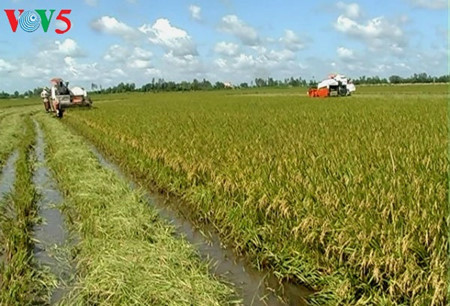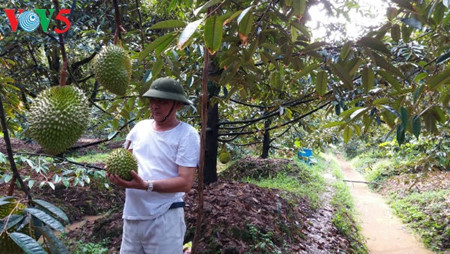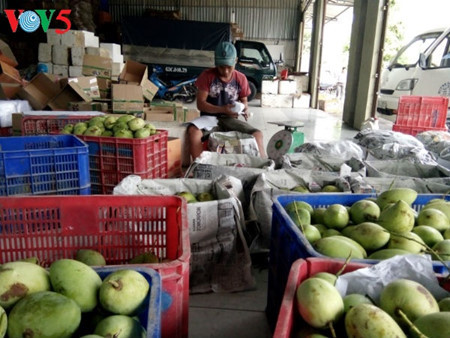Mekong Delta’s agriculture ahead of integration challenges.
- Heavy rain hurts farmers in Mekong Delta
- Mekong Delta region aims to fetch US$15 billion from export
- Mekong Delta seeks to conserve water
 |
| Building a brand for rice is the Mekong River Delta’s top priority (Photo: Phan Anh/VOV) |
The industry’s restructuring is vital and should focus on regional linking and building qualified and branded products.
Although the Mekong Delta’s economy grows every year, its sustainability is still low, with unstable agricultural production, outdated processing technologies, and high costs.
The region faces other difficulties, including farm land that is shrinking because of climate change, saline intrusion, and pollution.
Le Quang Tri, Director of the Institute for Climate Change Research at Can Tho University, said adaptation is currently conducted individually by households due to inadequate policies.
He called on provinces to promulgate policies that combine regional linking and trade diversification to fully exploit the strengths of each locality, focusing on “policies and people as the decisive factors.”
Tri noted “Climate change and its effect on water resources require us to adjust our production in two possible directions. First, we must adapt by designing corresponding measures. Second, we must prepare in advance to respond to climate change by designing appropriate policies for the agricultural sector.”
 |
| Durian brings in high economic values |
Le Thanh Tung, an official of the Ministry of Agriculture and Rural Development, said the delta’s farm produce still hasn’t met certain international standards and that a growing frequency of epidemics is raising production costs.
So stronger links are needed between localities, businesses, and farmers to drive development, according to Tung, adding “We also need determination by the entire agriculture sector to adopt a common viewpoint, a common way of evaluating advantages and obstacles, and a common method of implementation so that farm land will be used more efficiently.”
An agriculture restructuring project was launched in Dong Thap province three years ago where climate change has received much attention.
Le Minh Hoan, Secretary of the provincial People’s Committee, said Dong Thap has reached positive milestones in farm connectivity, modernizing production, and expanding cooperation, links, and markets. Much attention has been given to cost reductions and safer production.
Hoan explained “small-scale production makes it hard to develop brands and raise input costs. In the face of stiff competition, we must reduce production costs and still turn out qualified farm produce. Dong Thap and other provinces are trying to determine which models can reduce costs and help farmers adopt smarter production models to create more qualified products.”
 |
| Cat Loc mangos (Photo: Nhat Truong/VOV) |
Tran Huu Hiep, a full-time member of the Steering Committee for the Southwest Region, called on the region to strengthen management and quality oversight of local agricultural products.
“To restructure agriculture, we need to build value chains and products with a competitive edge in production input and post-harvest processing on a large enough scale to compete internationally. We should connect regions, sub-regions, and specialized farming areas toward setting up large-scale production models and economic cooperation,” said Hiep.

